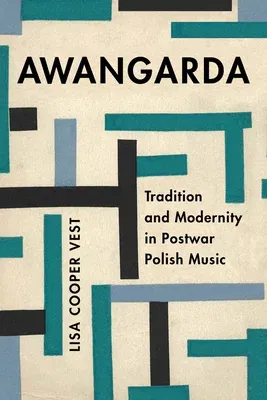Lisa Cooper Vest
(Author)Awangarda: Tradition and Modernity in Postwar Polish Music Volume 28Hardcover, 1 December 2020

Qty
1
Turbo
Ships in 2 - 3 days
In Stock
Free Delivery
Cash on Delivery
15 Days
Free Returns
Secure Checkout

Part of Series
California Studies in 20th-Century Music
Print Length
280 pages
Language
English
Publisher
University of California Press
Date Published
1 Dec 2020
ISBN-10
0520344243
ISBN-13
9780520344242
Description
Product Details
Author:
Book Format:
Hardcover
Country of Origin:
US
Date Published:
1 December 2020
Dimensions:
23.37 x
16 x
2.79 cm
Genre:
Polish
ISBN-10:
0520344243
ISBN-13:
9780520344242
Language:
English
Pages:
280
Publisher:
Weight:
521.63 gm